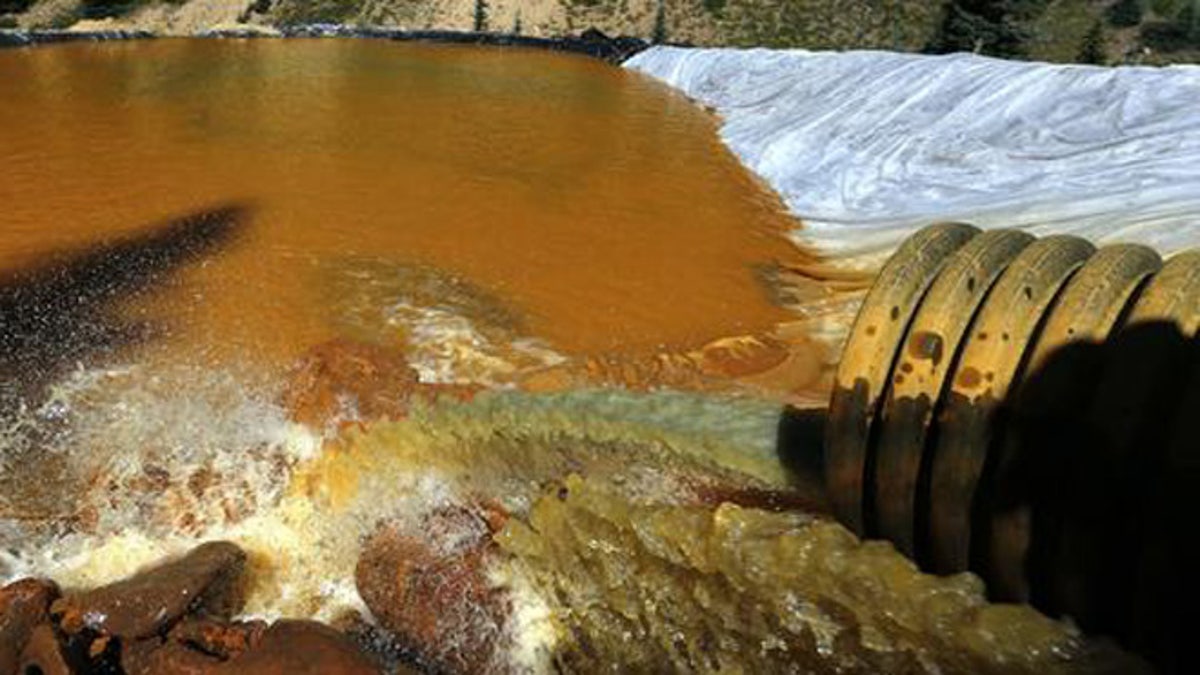
Aug. 14, 2015: Water flows through a series of retention ponds from the Gold King mine chemical spill. (Copyright 2016 The Associated Press. All rights reserved. This material may not be published, broadcast, rewritten or redistribu)
DENVER – The U.S. Attorney's Office in Colorado has declined to prosecute an employee of the Environmental Protection Agency over a massive mine wastewater spill that fouled rivers in three states, federal investigators said Wednesday.
The EPA's Office of Inspector General disclosed that it had found evidence the unnamed employee may have violated the Clean Water Act and given false statements.
However, office spokesman Jeffrey Lagda says federal prosecutors declined to pursue the case. He says that in lieu of prosecution, the case will be sent to senior EPA management for review.
An EPA-led cleanup team inadvertently triggered the Aug. 5, 2015, spill while doing work at the Gold King mine near Silverton. The 3-million-gallon blowout tainted rivers in Colorado, New Mexico and Utah with toxic heavy metals.
U.S. attorney spokesman Jeff Dorschner declined to comment, citing the office's longstanding practice of not discussing cases where prosecution is declined.
Members of Congress had pressed for a criminal investigation into the EPA's role in the disaster.
Several Republican lawmakers on Wednesday said the lack of a prosecution gives the "appearance of hypocrisy" in light of the Justice Department's record of pursuit of criminal charges in other cases referred by the EPA.
"By not taking up the case, the Department of Justice looks like it's going easy on its colleagues in EPA," the lawmakers wrote in a letter to U.S. Attorney General Loretta Lynch.
The letter was sent by House Oversight Committee Chairman Rep. Jason Chaffetz, R-Utah, Natural Resources Chairman Rep. Rob Bishop, R-Utah and Rep. Cynthia Lummis, R-Wyo.
Communities downstream of the spill were forced to temporarily halt drawing water from the rivers for drinking water and irrigation. Water quality in the rivers quickly returned to pre-spill levels, but the political fallout over the accident has endured.
The EPA last month designated Gold King and other nearby abandoned mines as a Superfund site to help fund more extensive cleanup efforts.
Across the U.S. abandoned mining sites send hundreds of millions of gallons of acidic wastewater into creeks and rivers every year.











































